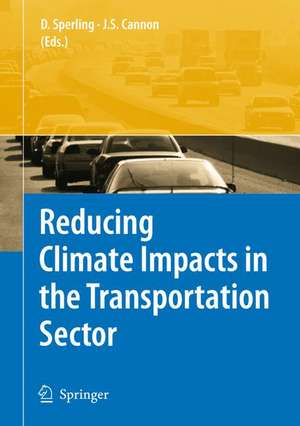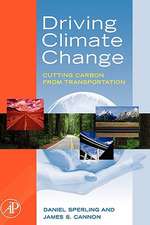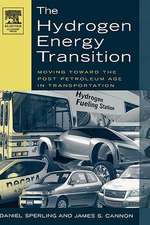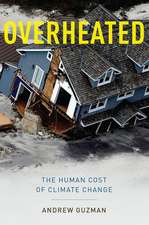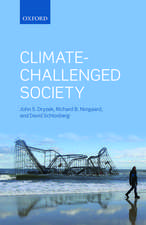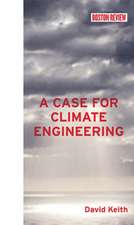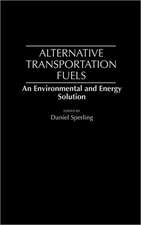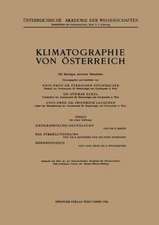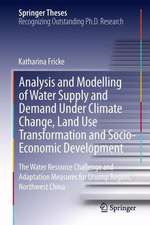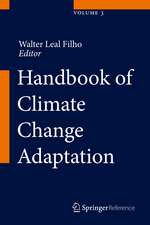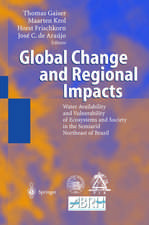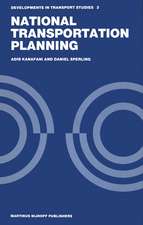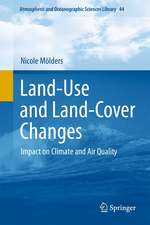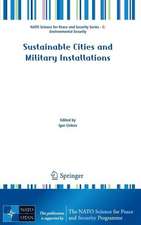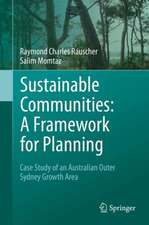Reducing Climate Impacts in the Transportation Sector
Editat de Daniel Sperling, James S. Cannonen Limba Engleză Paperback – 28 oct 2008
The chapters in this book examine increasing worldwide emissions of greenhouse gases, uncertain oil supply, evolving climate change science, public attitudes toward climate change, and the implications for the U.S. of growth in China, India and elsewhere. They propose methods to reduce growth in vehicle travel through alternative fuel, new technologies, and land use planning. They examine the costs and the potential for greenhouse gas reduction through deployment of advanced technology and alternative fuels and propose strategies to motivate consumers to buy fuel efficient and alternative fuel vehicles, including heavy duty trucks.
Preț: 387.75 lei
Nou
Puncte Express: 582
Preț estimativ în valută:
74.19€ • 77.67$ • 61.39£
74.19€ • 77.67$ • 61.39£
Carte tipărită la comandă
Livrare economică 07-21 aprilie
Preluare comenzi: 021 569.72.76
Specificații
ISBN-13: 9781402069789
ISBN-10: 1402069782
Pagini: 240
Ilustrații: VI, 250 p. 55 illus.
Dimensiuni: 155 x 235 x 17 mm
Greutate: 0.41 kg
Ediția:2009
Editura: SPRINGER NETHERLANDS
Colecția Springer
Locul publicării:Dordrecht, Netherlands
ISBN-10: 1402069782
Pagini: 240
Ilustrații: VI, 250 p. 55 illus.
Dimensiuni: 155 x 235 x 17 mm
Greutate: 0.41 kg
Ediția:2009
Editura: SPRINGER NETHERLANDS
Colecția Springer
Locul publicării:Dordrecht, Netherlands
Public țintă
Professional/practitionerCuprins
Climate Change and Transportation.- Energy Security, Climate and Your Car: US Energy Policy and Beyond.- Transport Policy and Climate Change.- Factor of Two: Halving the Fuel Consumption of New U.S. Automobiles by 2035.- Lead Time, Customers, and Technology: Technology Opportunities and Limits on the Rate of Deployment.- Heavy Duty Vehicle Fleet Technologies for Reducing Carbon Dioxide: An Industry Perspective.- Beyond Congestion: Transportation’s Role in Managing VMT for Climate Outcomes.- CO2 Reduction Through Better Urban Design: Portland’s Story.- Transportation-Specific Challenges for Climate Policy.- Are Consumers or Fuel Economy Policies Efficient?.- Fuel Economy: The Case for Market Failure.
Recenzii
From the reviews:
"Climate change is a reality. … Current modes of transportation are unsustainable, wasteful, and deleterious. … The problems of transportation are complex and perhaps intractable. Solutions that ignore this conundrum suggest that technology alone will not solve the problems so clearly laid down here. Summing Up: Recommended. Professional, general, and academic readers, upper-division undergraduates and above." (S. Hammer, Choice, Vol. 46 (11), July, 2009)
"Climate change is a reality. … Current modes of transportation are unsustainable, wasteful, and deleterious. … The problems of transportation are complex and perhaps intractable. Solutions that ignore this conundrum suggest that technology alone will not solve the problems so clearly laid down here. Summing Up: Recommended. Professional, general, and academic readers, upper-division undergraduates and above." (S. Hammer, Choice, Vol. 46 (11), July, 2009)
Textul de pe ultima copertă
More than 250 experts from around the world gathered at the Asilomar Transportation and Energy Conference in August 2007 to tackle what many agree is the greatest environmental challenge the world faces: climate change. This 11th Biennial Conference, organized under the auspices of the Energy and Alternative Fuels Committees of the U.S. Transportation Research Board, examined key climate change policy issues and strategies to combat climate impacts from the transportation sector, a leading source of greenhouse gas emissions. This book includes chapters by leading presenters at the Asilomar Conference that reflect the most current views of the world’s experts about a critical and rapidly evolving energy and environmental problem.
The chapters in this book examine increasing worldwide emissions of greenhouse gases, uncertain oil supply, evolving climate change science, public attitudes toward climate change, and the implications for the U.S. of growth in China, India and elsewhere. They propose methods to reduce growth in vehicle travel through alternative fuel, new technologies, and land use planning. They examine the costs and the potential for greenhouse gas reduction through deployment of advanced technology and alternative fuels and propose strategies to motivate consumers to buy fuel efficient and alternative fuel vehicles, including heavy duty trucks.
Audience:
Professionals in government, academic, environmental organizations, the automotive and energy industries, the knowledgable and engaged public.
The chapters in this book examine increasing worldwide emissions of greenhouse gases, uncertain oil supply, evolving climate change science, public attitudes toward climate change, and the implications for the U.S. of growth in China, India and elsewhere. They propose methods to reduce growth in vehicle travel through alternative fuel, new technologies, and land use planning. They examine the costs and the potential for greenhouse gas reduction through deployment of advanced technology and alternative fuels and propose strategies to motivate consumers to buy fuel efficient and alternative fuel vehicles, including heavy duty trucks.
Audience:
Professionals in government, academic, environmental organizations, the automotive and energy industries, the knowledgable and engaged public.
Caracteristici
Current information from the world’s experts on climate change Focused discussion on transportation, the most challenging source of climate change Detailed policy analysis of concrete steps to combat climate change In-depth discussions written in easy to understand language
